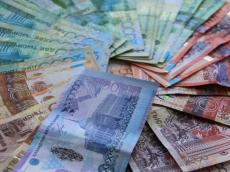|
|
TODAY.AZ / World news
S&P predicts fall in capitalization ratios of Kazakh banks
29 January 2016 [17:22] - TODAY.AZ

By Aynur Karimova
Standard & Poor's Ratings Services predicts the recent weakening of Kazakhstan's national currency, the tenge, to cut the capitalization of the country's banks, potentially leading to some rating downgrades.
In its report titled "How the recent devaluation of the tenge affects Kazakh banks' creditworthiness" published on January 29,the agency said that this will occur as the banks' foreign currency-denominated assets have materially increased, while their capital continues to be denominated in the tenge.
"We believe that banks' weak profitability and the limited ability and willingness of banks' shareholders to provide additional capital cannot compensate for a fall in capitalization ratios," Annette Ess, the S&P's credit analyst, believes.
S&P's report also noted that the banks with a share of foreign currency-denominated loans substantially above the already high system average of an estimated 35-40 percent will be the most affected.
Since the National Bank of Kazakhstan and the central government unpegged the tenge from the USD on August 20, 2015, the tenge has depreciated by approximately 50 percent.
"The pressure on banks' capital positions suggests that we cannot exclude the possibility of downgrades on certain Kazakh banks as reflected in current negative outlooks on several of those," said Ess.
"In particular, negative rating actions could stem from reassessments of the capital and earnings position of those banks whose capitalization, as measured by our forecast RAC ratio, will be materially impaired by tenge depreciation in 2015, among other economic factors," Ess added.
Kazakhstan was forced to go to devaluation of the national currency three times since 1999. Over the past two years, the Kazakh national currency lost more than half of its value. In early 2014, the exchange rate of the tenge was at 154.06 tenge/dollar.
Kazakhstan, the largest oil producer among former Soviet republics after Russia, shifted to a floating exchange rate in August 2015 after the tumbling crude prices and devaluations in Russia and China.
In September and October 2015, the National Bank abandoned the transition to a free-floating tenge rate and started to sell currency instead. The bank’s share in the currency market reached 60 percent. Kazakh National Fund and the National Bank sold more than $5 billion in this period.
Meanwhile, experts predict a sad scenario for the tenge's fate. They believe that in the near term, oil will probably continue to fall and that will negatively affect the tenge.
URL: http://www.today.az/news/regions/147257.html
 Print version
Print version
Connect with us. Get latest news and updates.
See Also
- 08 February 2026 [23:36]
Coca-Cola signs new football partnership with Irish FA and NIFL - 08 February 2026 [20:43]
Iran warns of unexploded bombs at nuclear sites hit by US strikes - 08 February 2026 [20:18]
Syrian Red Crescent volunteer killed during flood rescue in north-west Syria - 08 February 2026 [19:21]
Pakistan arrests suspects linked to deadly Isis mosque bombing in Islamabad - 08 February 2026 [18:22]
Netanyahu to meet Trump after Iran–US nuclear talks in Oman reach impasse - 08 February 2026 [16:10]
Ukraine imposes new sanctions targeting Russia’s defence and financial networks - 08 February 2026 [15:19]
South Africa plans exit from UN mission in Congo, citing military realignment - 08 February 2026 [14:24]
Muscat talks expose depth of Iran–US divide after 2025 escalation - 08 February 2026 [12:11]
Syria arrests security officer after deadly shooting in Suwayda countryside - 08 February 2026 [09:00]
Trump, Netanyahu to meet in Washington DC on Wednesday
Most Popular
 Epstein files blur fact and fiction with shocking Biden ‘replacement’ claim
Epstein files blur fact and fiction with shocking Biden ‘replacement’ claim
 Zelenskyy claims US gave Ukraine and Russia a deadline to reach peace agreement
Zelenskyy claims US gave Ukraine and Russia a deadline to reach peace agreement
 Int'l Mugham Center holds magnificent concert
Int'l Mugham Center holds magnificent concert
 President Ilham Aliyev receives delegation led by Iranian Minister of Defense and Armed Forces
President Ilham Aliyev receives delegation led by Iranian Minister of Defense and Armed Forces
 Azerbaijan National Carpet Museum opens ‘Silent Prayers’ Exhibition
Azerbaijan National Carpet Museum opens ‘Silent Prayers’ Exhibition
 Gilavar Photo Club launches 'My Urban World' Int'l Photography Competition
Gilavar Photo Club launches 'My Urban World' Int'l Photography Competition
 Epstein files expose deeper ties with global scientific elite
Epstein files expose deeper ties with global scientific elite
